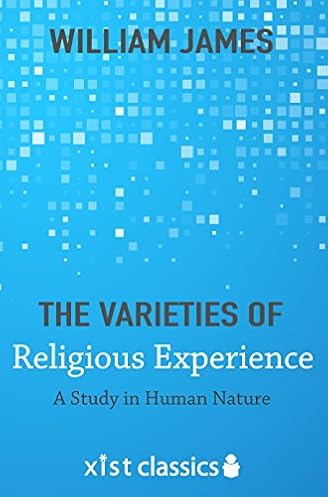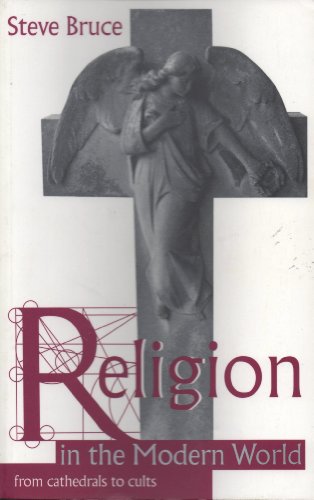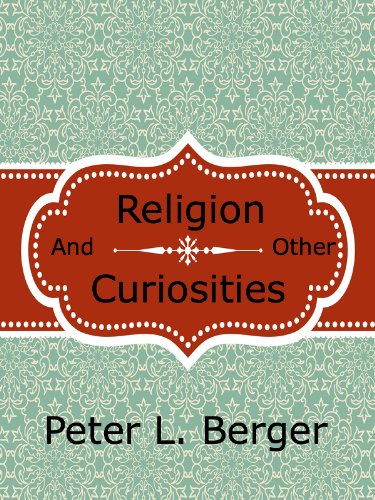What is Religion? How Do You Define Religion?
https://www.humanreligions.info/what_is_religion.html
By Vexen Crabtree 2016

- Short Definition of Religion
- Long Definition of Religion
- Religion is Difficult to Define Because It's Not a Single Thing
- Shared Collections of Beliefs, Passed on From Believers to Converts
- Transcendental Beliefs
- Actively Meaningful and Serious
- (1) Organized Religion and (2) Folk Religion
- Links
1. Short Definition of Religion
#comparative_religion #defining_religion #religion #religions #religious_studies
2. Long Definition of Religion
#comparative_religion #defining_religion #religion #religions #religious_studies
Religions are shared collections of transcendental beliefs that have been passed on from believers to converts, that are held by adherents to be actively meaningful and serious and either based on (1) formally documented doctrine (organized religion) or (2) established cultural practices (folk religion). In both forms, there are religious professionals who embody formal aspects of the religion and who act in positions of leadership and governance, and there are certain rituals reserved for them to carry out. The beliefs generate practical implications for how life should be lived.
Religions often include: spiritual explanations of our place in the world in an attempt to answer questions about "why we are here"; worship of deities and/or supernatural entities (including ancestors); conceptions of "holy" and "sacred" activities ideas and objects; set rituals, calendar events based on the changing seasons, distinctive dress codes (especially for religious professionals), codes of morality and action that are given a mandate from a supernaturally great being, from a supernatural force or from the will of the Universe itself; and, a caste of privileged and exalted professionals who have particular claims to be in touch with transcendental forces.
Read on for sociological commentary to justify these definitions. Most of the following sections begin with extracts from the Short Definition.
3. Religion is Difficult to Define Because It's Not a Single Thing
#buddhism #christianity #islam #jehovah's_witnesses #paganism
 Religion is difficult to define, because human belief structures are varied and complicated1,2. Many definitions of religion have been attempted but many fall foul of being too narrow, or too wide. Many definitions are biased towards continental cultural norms - in particular, Western credal theism3. William James, one of the most respected surveyors of religion, lectured in 1901-2 that "the very fact that they are so many and so different from one another is enough to prove that the word 'religion' cannot stand for any single principle or essence, but is rather a collective name"4. It has proven problematic to come to a reasonable definition which describes the varieties of religion found across the East and West, both old and new. Many people have given up even trying to define religion coherently5,6,7 for example William James gives space to the opinion that "the man who knows religion most completely troubles himself least about a definition"8. What is counted as being "religious" and what counts as "a religion" changes over time and from place to place9.
Religion is difficult to define, because human belief structures are varied and complicated1,2. Many definitions of religion have been attempted but many fall foul of being too narrow, or too wide. Many definitions are biased towards continental cultural norms - in particular, Western credal theism3. William James, one of the most respected surveyors of religion, lectured in 1901-2 that "the very fact that they are so many and so different from one another is enough to prove that the word 'religion' cannot stand for any single principle or essence, but is rather a collective name"4. It has proven problematic to come to a reasonable definition which describes the varieties of religion found across the East and West, both old and new. Many people have given up even trying to define religion coherently5,6,7 for example William James gives space to the opinion that "the man who knows religion most completely troubles himself least about a definition"8. What is counted as being "religious" and what counts as "a religion" changes over time and from place to place9.
My own definition takes into account many previous attempts, adjusts for common errors, and arrives, I hope, at a definition that includes most of the variety of religion without accidentally including activities that have some similarities but are not actually religious in nature. Having said that, you should always be wary of terse definitions of religion. My own definition falls into the category of statements that are probably too short and simple. Religion is an umbrella term for multiple things and as such, it is difficult to define religion without taking time to highlight the various guises of religion and religious behaviour.
It occurs in today's confusing and wild world, that "religion" is a term that is denied by some of those very people who the term encompasses. Some Christians declare that Christianity "is not a religion, it is a relationship with Jesus". Likewise, some Muslims say "Islam is not a religion - it is a way of life"10 and it used to be the case that "most Hindus do not realize they 'belong' to that religion, for it is a name given by outsiders10. One academic author bemoans that they "have lost count of how many times converts or adherents to such varied belief systems as Paganism, Islam, Buddhism and Jehovah's Witnesses have said to me, 'It isn't a religion, it's a way of life'"11. Thankfully, most adherents understand the utility of words well enough to accept that they belong to specific religions, and nowadays there is a strong Hindu-awareness movement that heralds a new generation of Hindus who consciously identify as belonging to a distinct religion too. The definition of religion declared here helps make it clear that religion-denying adherents of religions are indeed religious in nature, even if some don't acquiesce to that statement.
For more, see: Hinduism: 4. The Formation of Hinduism as a World Religion.
4. Shared Collections of Beliefs, Passed on From Believers to Converts
Not just individual beliefs.
Religions must be separated from people's individual belief systems. Ole Preben Riis in "Methodology in the Sociology of Religion" (2011)12 says religion is "a world view, an ideology, an organization, an attitude, a set of values, as moods and motivations, or as an ethical disposition"13. Also, the The Penguin Dictionary of Religions14 says religion is "a general term used in most modern European languages to designate all concepts concerning belief in God(s) and Goddess(es) as well as other spiritual beings or transcendental ultimate concerns".
But those definitions aren't good enough, because they describe religious beliefs but not religions in general. Ideas are complicated and almost everyone's understanding of almost every concept takes on a unique character, with unique assumptions and features, according to each individual. If we accepted the definitions above, it would mean that every person would represent their own religion and the word would be useless. So the Penguin definition and Riis's list of possible characteristics both fail to differentiate between personal beliefs and organized religion.
The answer is to mould beliefs into common categories, and it is only considered a "religion" if these simplified versions of beliefs are codified into things that are recognizably passed on from person to person.
Scholar Kenneth Kramer is another author who phrases religions as those things involving "personal and communal experiences of sacred mystery, and expressions of ultimate meaning, value and truth"15, which is still open to the problem of mistakenly allowing all personal beliefs to be conflated with religion as a whole.
For more, see:
 One definition of religion that is quite close to mine is that of sociologist Steve Bruce in 1996:
One definition of religion that is quite close to mine is that of sociologist Steve Bruce in 1996:
“Religion, then, consists of beliefs, actions, and institutions which assume the existence of supernatural entities with powers of action, or impersonal powers or processes possessed of moral purpose.”
"Religion in the Modern World: From Cathedrals to Cults" by Steve Bruce (1996)1
The problem is that this could apply to each individual's own conception of reality; such that every person would be said to follow his own personal religion. Even if trying to adhere to a set system, all of our actual thoughts are unique to us, with so many possible tangents and details that no two people have the same set of beliefs. For this reason, the shared collections of beliefs element in my own definition brings some order: only those common, shared and passed-on elements of beliefs can come to be called a religion. It was anthropologist and sociologist Lawrence A. Babb who described religion as a kind of system "that retains and transmits information" "in encoded and symbolic forms"16. That transmission is what allows personal beliefs to become religions.
5. Transcendental Beliefs
#buddhism #christianity #deism #islam #religion #supernatural #theism
Over-Use of the 'religious' adjective: The word 'religion' is too wide if it can be used to describe almost anything that is engaged in with passion and dedication. John Bird in "Investigating Religion"17 notes that this has already been discussed by sociologists, and the correct position is that many personal beliefs and activities may be similar to religious beliefs and behaviours, but, that doesn't make them actually religious. He discusses football fanaticism, and says "Robert Coles (1975) asks whether it is legitimate for sociologists to regard football as a religious surrogate. [...] Coles does not say that football is a surrogate religion, but he does say that many of the social processes going on in football grounds are very like those going on in religious worship"18. He's not the only one tempted to take the definition of "religion" too widely:
“In the opinion of some writers an attitude might be called religious, though no touch were left in it of sacrifice or submission, no tendency to flexion, no bowing of the head. Any "habitual and regulated admiration," says Professor J. R. Seeley, "is worthy to be called a religion"; and accordingly he thinks that our music, our science, and our so-called civilization, as these things are now organized and admiringly believed in, form the more genuine religions of our time.”
"The Varieties of Religious Experience" by William James (1902)19
Religion and beliefs share the same human factor but aren't always synonymous. You can't define religion so liberally that it covers everything non-rational no matter how sternly the belief is held or how compulsive the behaviour is, otherwise the word "religion" ceases to have an actual meaning. The definition of religion must be able to differentiate between general beliefs and specifically religious beliefs1. Even some beliefs that are strongly tied to religion aren't necessarily religious in nature. For example, theism is the belief in god(s). But by mere fact of being a theist doesn't mean that a person is religious in any particular way. I.e., the basic belief isn't what religion is. Christians, Muslims and Deists are all theistic, so, merely the "belief in God" doesn't make a person religious - it makes them theist. Likewise, it is not the case that any supernatural-related beliefs can be automatically counted as religious in nature. These beliefs become religious once they are part of a worked-out transcendental system, written down and codified, and passed on to others.
Transcendental beliefs: Religions explain and involve things that are out of this world in some way; a hidden order, or entire hidden realms of spiritual existence that are hard to realize while here on Earth. Other authors use words such as "holy" or "sacred" to cover this concept - Moojan Momen uses these in the very first sentence where he begins to discuss what 'religion' means20. But 'holy' is associated with theism in particular so is a poor choice for a discussion of worldwide religion, and 'sacred' doesn't fare much better. But both are reflections of transcendental values, and the neutral term 'transcendental' is more widely applicable.
If there was no transcendental element, a religion's beliefs would merely be philosophy, superstition or supernaturalism, and its organisations would be philosophical schools or individual believers. For example, to believe in ghosts is to have a supernatural belief, but, it doesn't make the believer part of any particular religion.
 But, how to define this transcendental element? Many have tried. Peter L. Berger (2012)21 comments that:
But, how to define this transcendental element? Many have tried. Peter L. Berger (2012)21 comments that:
“At the core of religious faith is the belief (if you will, the bet) that oblivion is not the last word about human existence.”
"Religion and Other Curiosities" by Peter L. Berger (2012)22
Many hold that in Buddhism, the belief very much is that oblivion through Nirvana is not only the final word, but, is actually the intended aim. But it's arguable that this kind of 'oblivion' is a different kind to the one Berger mentions. William James starts in a similar place:
“Were one asked to characterize the life of religion in the broadest and most general terms possible, one might say that it consists of the belief that there is an unseen order, and that our supreme good lies in harmoniously adjusting ourselves thereto.”
"The Varieties of Religious Experience" by William James (1902)23
James adds three notes to this characterization:
“
- That the visible world is part of a more spiritual universe from which it draws its chief significance;
- That union or harmonious relation with that higher universe is our true end;
- That prayer or inner communion with the spirit thereof - be that spirit “God” or “law” - is a process wherein work is really done, and spiritual energy flows in and produces effects, psychological or material, within the phenomenal world.”
"The Varieties of Religious Experience" by William James (1902)24
The third note about real-world effects might not always be true; deists believe in a passive god, but, strictly there is no scope the production of "effects" as a result of prayer or worship. I was tempted to included "with practical implications for how life should be lived" in the short description, but didn't want to readily omit deists. Despite that, many do consider deism "a belief" or "a philosophy" (albeit a theistic one) rather than a "religion" (due to the lack of shared beliefs). It is difficult to judge, and I opted to only include the "with practical effects" clause in the Long Description.
We've already referred to Steve Bruce's definition of religion, and he approaches the question of transcendental beliefs as follows:
“Religion, then, consists of beliefs, actions, and institutions which assume the existence of supernatural entities with powers of action, or impersonal powers or processes possessed of moral purpose.”
"Religion in the Modern World: From Cathedrals to Cults" by Steve Bruce (1996)1
He divides up transcendental beliefs into "supernatural entities" and "impersonal powers", both of which have "moral purpose". This is an excellent and succinct scheme. In his discussion he points out that you cannot refer only to supernatural entities as this doesn't suit some non-Western religions. And it is a wise move to add that transcendental order(s) have a moral purpose: it is very hard indeed to find any exceptions to this in the world of religion. However, exceptions there are: deism has as its head a theistic figure that is uninvolved with our lives, and which does not make moral judgements of us. The intentions of the deist's god are unknown. Therefore, their religion does not include a "moral purpose" in its transcendental belief. A complication is that many deists are not a member of any religion, although, the term has become well-known enough that some do consider deism in general to be its own religion (albeit one with just one defined belief). If you want to include deism in a general description of religion, you can't stipulate that religion should have a moral order. In my long definition, the second paragraph does mention (for reasons of common-sense) that religions "often include... codes of morality... given a mandate from a supernaturally great being; a supernatural force or from the will of the Universe itself", which does manage to cover both theistic and non-theistic religions, but also admits that not all religions necessarily conform to the requirement of a moral order. Defining religion is not an easy task!
6. Actively Meaningful and Serious
Religion is not merely a paper-based issue. Merely stating "I am X" is not enough: religion should be something that is truly held to be meaningful by the individual. It affects actions - but I haven't included "actively effects adherents' behaviour" in the Short Description of religion because most people understand that beliefs naturally effect people's behaviour - be this in a way that is political, philosophical or even just whimsical. So there isn't much point saying that religious beliefs, too, effect behaviour.
William James notes that religion "signifies always a serious state of mind"25. In general, this excludes parody religion such as Church of the Flying Spaghetti Monster (Pastafarianism) from being considered a true religion - although they are making serious points about the daftness of dogma, the underlying transcendental beliefs are not religious nor serious, therefore parody religions are philosophies, not religions.
7. (1) Organized Religion and (2) Folk Religion
There are two major forms of religion:
Organized religion. This is a post-literate form of religion with a set of formally defined beliefs. There are formal documents and/or a formal body of people who can interpret the formal beliefs. In the modern world, there are many beliefs that are not part of religion. Therefore, literate individual beliefs are not "religious" unless they specifically (and consciously) accord with a known doctrinal system. Not all personal beliefs have to accord with the individual's declared religion.
Folk religion: Mostly pre-literate, this is a form of cultural religion where superstitious community practices have established themselves over time.
For more, see: "Cultural Religion Versus Scholarly Religion" by Vexen Crabtree (2013).